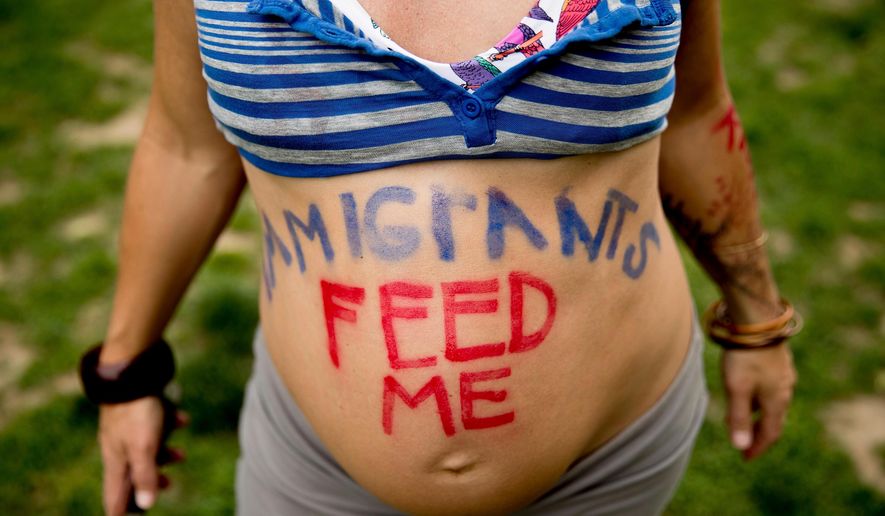he government’s top auditor gave ICE and the Border Patrol a mostly clean bill of health Tuesday when it comes to treatment of pregnant illegal immigrants, finding that while dozens of complaints of maltreatment are lodged, few of them can be substantiated.
Complaints that were backed up included one instance where a pregnant woman in custody of U.S. Immigration and Customs Enforcement wasn’t given prenatal vitamins, according to the Government Accountability Office.
Another substantiated complaint against the Border Patrol found that an agent had posted a picture and information about a pregnant woman online, violating the agency’s social media policy, the GAO said. That agent was suspended for two days.
But complaints alleging excessive force were either disproved or couldn’t be substantiated for a variety of reasons, investigators said.
The report comes at a time when treatment of pregnant illegal immigrants is a hot-button issue.
The American Civil Liberties Union earlier this month filed a complaint alleging that a woman was forced to deliver her baby while standing up in a border detention facility. The unnamed woman from Guatemala repeatedly tried to enter the U.S. with her family, saying they were fleeing a government official from back home and wanted asylum, and finally jumped the border and was arrested.
Democrats on Capitol Hill, including House Speaker Nancy Pelosi, demanded an investigation. The California Democrat cited “a pattern of U.S. officials denying and delaying medical treatment to pregnant women and subjecting them to prolonged detention and inappropriate treatment in inadequate facilities.”
It does not appear that complaint was part of the GAO’s review, which covered the period from January 2015 through April 2019, but the audit did challenge the sense of a pattern of maltreatment.
Overall, ICE had a 79% compliance rate with pregnancy-related measures: 94% of women ages 10 to 56 were given pregnancy tests at intake, and 100% who needed x-rays or medication were tested for pregnancy to prevent complications, GAO said. More than 90% of pregnant women in detention were seen by an obstetrician-gynecologist within 30 days of confirmation of their pregnancy.
Some deficiencies were noted, but ICE has taken action to correct them, the GAO said.
One area where compliance was low was in administering the Hepatitis B vaccine, the audit found.
Most of the pregnant women that come into ICE custody came from arrests from Customs and Border Protection agents or officers. CBP usually has custody for hours or days, as its facilities are designed for processing, not for detention.
The woman from this month’s ACLU complaint was in border custody.
When GAO investigators interviewed pregnant women they found a strange dichotomy in the stories they were told.
Women interviewed while still in custody said they were given pregnancy tests quickly, found their sleeping accommodations adequate and received prenatal vitamins. Four pregnant women released from custody complained that those precautions didn’t happen.
Women in both categories complained that they should have been given more access to doctors, and said they needed more food than they were given.
All told, ICE and CBP detained more than 4,600 pregnant women for at least some period of time from 2016 through 2018.
The vast majority were in custody less than a week, though one in 2018 was in ICE custody for more than 270 days.
From 2015 to 2019, 58 pregnant women in ICE custody had miscarriages, two had abortions and one gave birth.
GAO reviewed more than 100 complaints and found just three to be substantiated or partially substantiated. Twenty-four others were largely disproved. The rest either were too vague to investigate, were still under investigation or weren’t solvable for other reasons.
In its official response to the report, Homeland Security said it gives serious consideration to treatment of pregnant women, including not generally detaining them during the third trimester.
“ICE only detains pregnant women at facilities where they can receive the appropriate accommodations and prenatal care,” said Jim H. Crumpacker, Homeland Security’s liaison to GAO.
• Stephen Dinan can be reached at sdinan@washingtontimes.com.




Please read our comment policy before commenting.